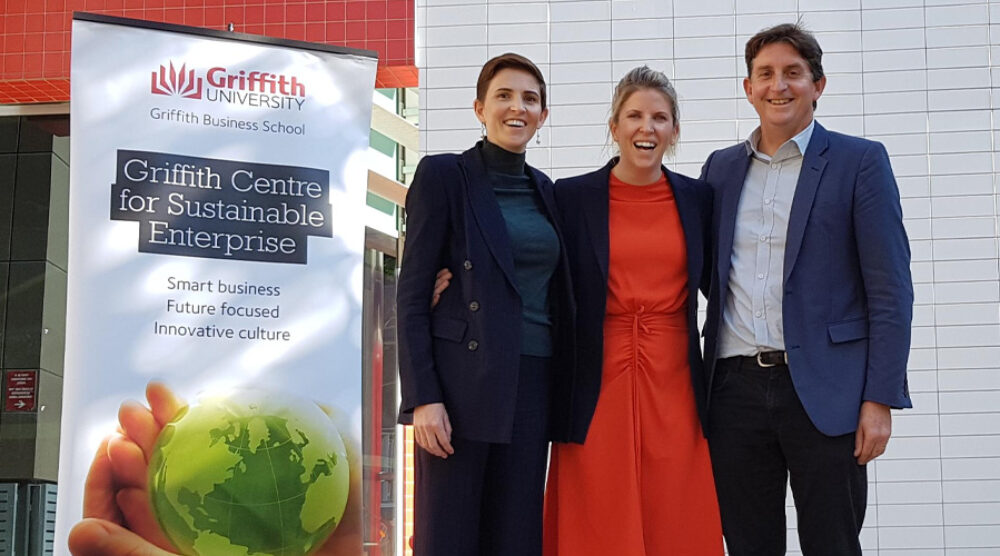The transition to a circular economy requires us to transform the way we create products, services, and systems, and is dependent on how we learn and apply those learnings in the real world, as individuals, teams, and organisations.
Global concerns over climate change, environmental degradation and social inequality indicate how critical it is for business leaders to be prepared for this new business environment.
Dr Rob Hales from the Department of Business Strategy and Innovation and Director of the Centre for Sustainable Enterprise has teamed up with newly appointed Adjunct Fellows, Ashleigh and Jaine Morris, Chief Executive Officer and Chief Operating Officer at Coreo to develop a transformational leadership course for the circular economy.
In 2017, Coreo founders created Australia’s first circular economy pilot project, The Circular Experiment, with a mission to catalyse the global transition to a circular economy.
For six months they worked with 45 businesses on Ocean Street in Queensland to implement six circular economy principles. Together they created an environment built on trust and collaboration that helped unlock economic opportunities for the street. They worked to change the narrative around what was possible thus enhancing social outcomes and finally they reduced the streets’ dependence on finite resources.
“Creating this course has been such a wonderful way to reflect on and create content around the lessons Ash and I have learnt actioning Circular Economy throughout Australasia over the past two and a half years.”
The course adheres to the philosophy of:
- System thinking for change: Assumptions about how things presently work can be challenged by understanding our personal intentions and the system we want to see.
- Sustainability solutions: We must foster social and institutional learning and experimentation and advancing knowledge through “organisational learning by doing” and make it more effective in order to build institutional capacity for CE.
- Transformative leadership: Building on relational approaches to leadership how can a focus on ‘business for good’ transform the way leaders create change.
- Creating leadership actions: Our thoughts, words and actions have an effect on people that can create the change we want to see in the world. Changing yourself and how you communicate can change your world.
- Participatory approaches to learning: To support learning about the circular economy, we place an emphasis on interdisciplinary, project-based, and storytelling approaches. Our aim is to help people understand how they can influence the complex systems around us.
This course allows participants to understand the foundational knowledge of circular economy (CE), global trends in CE, local policy and legislation that facilitates CE and importantly the mind shift and communication skills required to facilitate the transformation of the economy from linear to circular.
“We will deliver our first cohort in September and I am also incredibly excited to announce that Ken Webster, the former head of innovation at the Ellen MacArthur Foundation will be a guest presenter in the course.” Ms Morris said.
Please click here to find out more and register.






